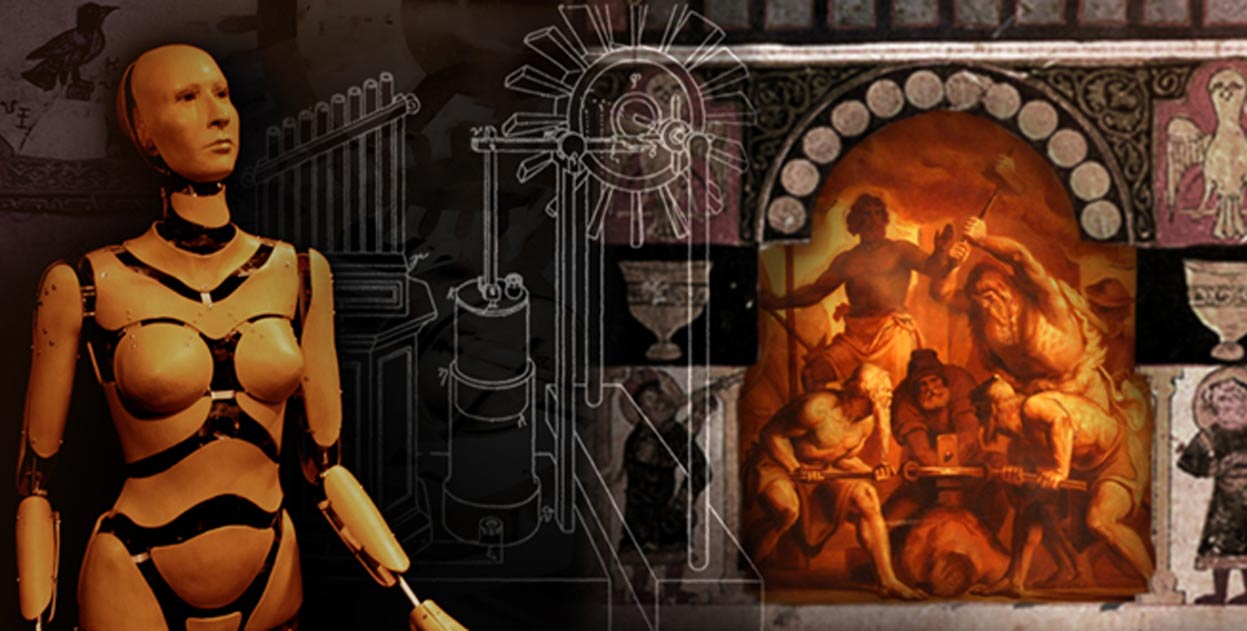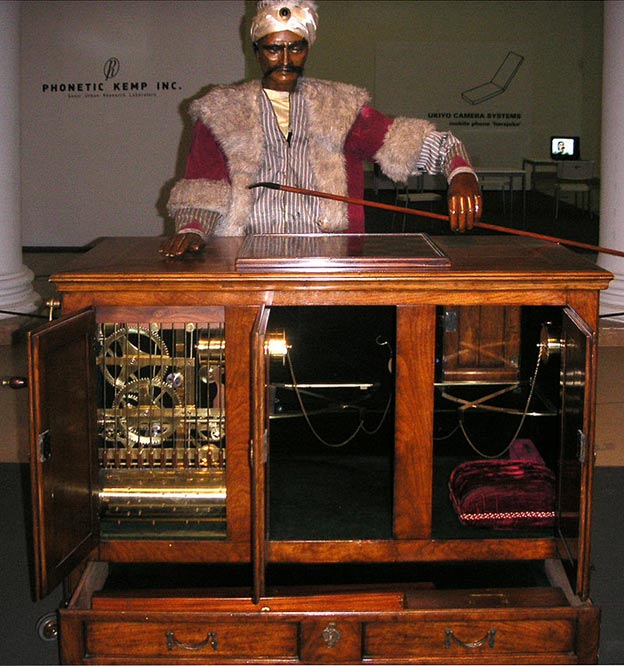
Ancient Automata: The Magic of the Mechanical Realm and Machines Brought to Life
When the dark magician was wheeled out before the audience—with an eerie and inscrutable expression on his face, and dressed in mystical robes and bejeweled turban—a hush fell over the court of Empress Maria Theresa of Austria. It was 1770, and inventor Wolfgang von Kempelen boasted that no human would be able to defeat the magician at his game: chess.
This seemed an incredible claim, as the magician clearly had no brain. The magician was not human, but a construction; a prop in man’s clothing. Lifeless and still, it had a human-looking head and torso, a black beard, and was dramatically dressed in Turkish robes as an “oriental sorcerer.” The look was completed with a long Turkish smoking pipe.

“How he captivates. His eyes slowly go back and forth…” (Flickr/CC BY 2.0)
It sat lifeless behind a wooden cabinet filled with shining brass gears and clockwork parts. On the cabinet rested a chess board and pieces.

A reconstruction of the Turk, chess-playing automaton designed by von Kempelen in 1770. (CC BY-SA 3.0)
But Kempelen carefully wound a mechanism in the device, and when the sorcerer lifted its silver gaze, and raised its hand—seemingly impossibly—the crowd cried out in shock, amazement, and horror.
The ‘Turk,’ as it became known, went on to defeat all challengers in the game of chess, including experts, royals, statesmen, and sharp intellects, such as Benjamin Franklin and Napoleon Bonaparte.
The Mechanical Turk (or Automaton Chess-player) was the amazing result of a challenge to impress the Empress of Austria. Invented and built by von Kempelen, it is now said the astonishing machine was an 18th century hoax, as it was not fully autonomous but an ingenious deception, and a blend of machine and man. It seemingly did not play and win games of chess against thinking humans just by the act of winding its clockwork springs alone.




